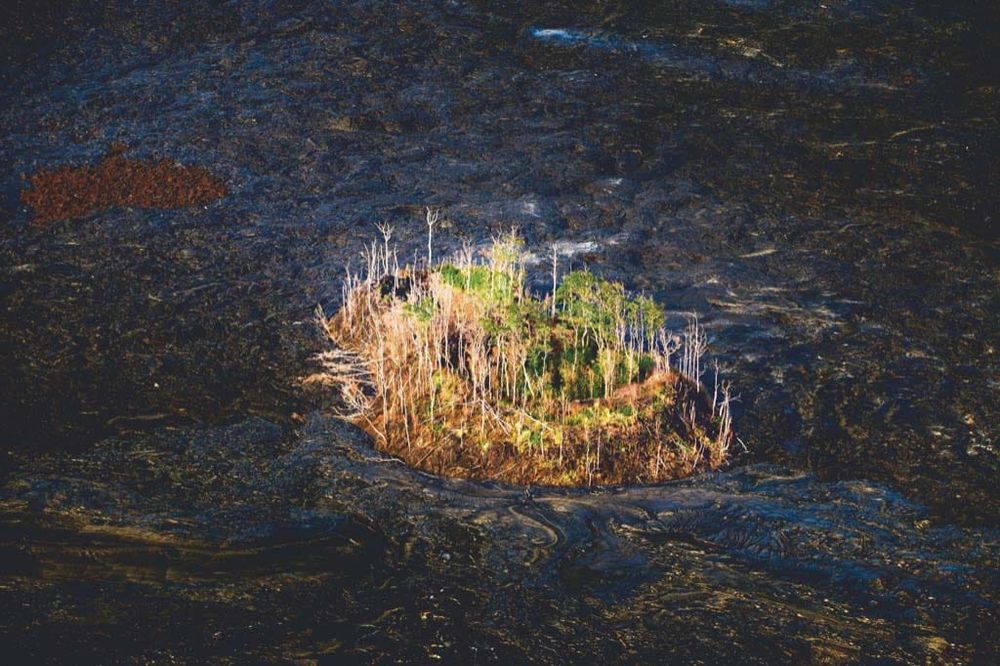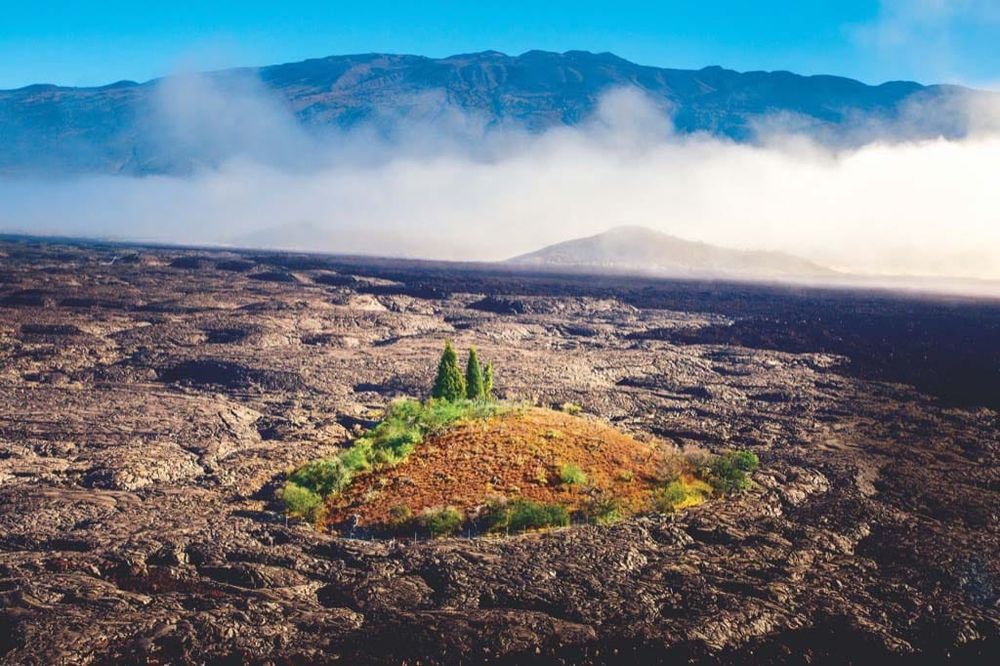Sometimes when a volcano erupts and the subsequent lava flows engulf the mountain slope and the surrounding terrain, some pieces of the land, due to their elevation, are spared by destruction. These patches of land left undevastated by lava then become islands of sort for plants, animals and birds alike to take refugee in an otherwise inhospitable environment. They are called kīpuka, a word that originated from the Hawaiian language and means a “hole” or “opening”.
Photo: Andrew Richard Hara/Hana Hou!
Kīpukas are common feature in Hawaii where they play an important role as biological reservoirs for plants and animals, from which the covered land can be recolonized later. They may also shelter native species from recently invasive ones. Surrounded by harsh terrain, native plants and animals may be inaccessible to new species that would displace them. This isolation also foster specification—the formation of new and distinct species. Once a kīpuka forms, plants and animals that cannot travel long distances on their own become trapped. Organisms within the isolated kīpuka then have a limited gene pool. And over time, without a larger population to breed with, different genes may become dominant. Organisms can evolve significantly— possibly into entirely new species.
One of the most prominent kīpuka in Hawaii is Kīpukapuaulu on Big Island which has survived many lava flows from Mauna Loa volcano and is now one of most biologically diverse forest in Hawaii with more native tree species per acre than any other forest in Hawaiʻi Volcanoes National Park.
Photo: Andrew Richard Hara/Hana Hou!
Photo: Andrew Richard Hara/Hana Hou!
Photo: Andrew Richard Hara/Hana Hou!

















Comments
Post a Comment